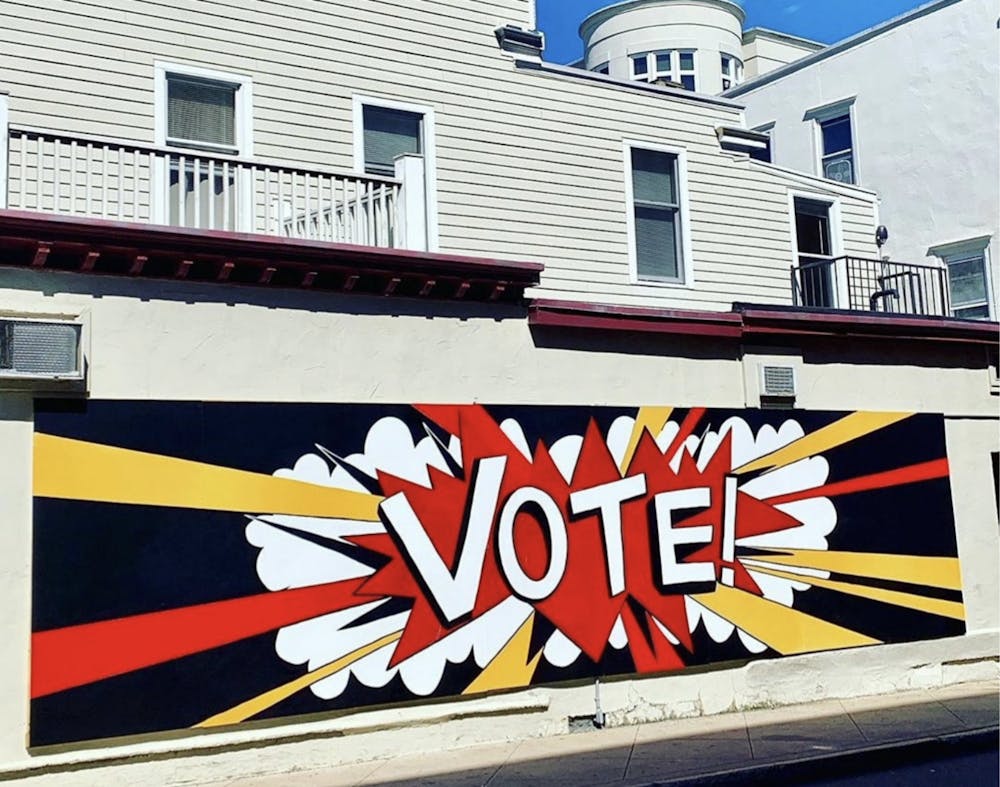The following is a guest contribution and reflects the author’s views alone. For information on how to submit a piece to the Opinion section, click here.
“They killed the president,” my father said solemnly. Despite the shocking nature of the news, a tremor in his voice suggested that this was the beginning of something far more sinister.
I was born and raised in Port-au-Prince, Haiti. I arrived in Princeton in June 2021 as a participant in the Freshman Scholars Institute (FSI). Two weeks after moving in, I received my father’s chilling call.
In the months that followed the assassination of Haiti’s president, gangs took over more than 80 percent of Port-au-Prince, the country’s capital. In the first four months of 2023, more civilians were killed in Haiti than in the war in Ukraine during the same period of time. Since January 2022, over 10,000 Haitians have been killed or injured as a result of gang violence. These kinds of troubles are not new. Haiti has long been plagued by political instability, social unrest, and frequent natural disasters, including devastating earthquakes and hurricanes.
As a non-citizen, I am not entitled to a vote in the upcoming U.S. presidential election, but the outcome of this election will potentially have dramatic consequences for my family and thousands of others who have taken refuge in this country — many of whom are related or connected to Princeton students and community members. Their future is in the hands of those who can vote — including many Princeton students.
While I understand why some people believe that no side deserves their vote, there are clear distinctions between the opposing sides that we simply cannot ignore. That is why it is important for eligible Princeton students to use their right to vote to make sure Donald Trump does not get back into power.
In 2021, following the assassination of Haiti’s president, the Biden administration granted my homeland Temporary Protected Status (TPS), which allowed Haitian nationals residing in the United States as of May 21 to apply for temporary refuge. TPS provides work authorization and “protection from deportation” to people from certain countries experiencing “ongoing armed conflict, environmental disaster, or extraordinary and temporary conditions.” In January 2023, the Biden administration expanded the “humanitarian parole” program to allow Haitians living in Haiti to apply for temporary asylum in the United States provided they had a sponsor in this country and passed a background check.
These programs have helped many Haitians fleeing gang violence find temporary refuge in the United States. My aunt is among them. She had to flee her neighborhood after it was overrun by gangs. Many Haitians and Haitian-Americans in the Princeton community have also been touched by these programs. They are people you pass by every day and probably greet on your way to class. They are people who have shared with me how much the federal government’s humanitarian measures have meant to them and their loved ones.

Sadly, the Haitian community in the United States has faced a great deal of hostility recently. A few weeks ago, influential political figures, including the Republican Party’s nominees for president and vice president, spread baseless and derogatory claims about Haitian immigrants, leading to threats, discrimination, and violence against them in cities such as Springfield, Ohio, and Charleroi, Pennsylvania. Over fall break, after introducing myself at a party, I was asked by a college graduate if “my people” really eat cats and dogs.
Haitians have been cast as scapegoats for everything that is wrong with American cities, despite reports and testimonies highlighting the many ways in which they have enhanced their adoptive communities. Haitian immigrants have boosted the economies of declining cities, fostered population growth, and enriched the cultural environment. Paradoxically, in a country built by immigrants, such contributions have often been overshadowed by invective that blames the United States’ ills on newcomers.
Under a Trump administration, people like my aunt, who entered the country legally, may no longer be recognized as legal immigrants and could face deportation. Indeed, my family members could be among the multitude of people with asylum claims that Donald Trump has promised to send back to their countries if he wins in November as part of a mass deportation campaign. In short, people who are piecing together their lives in ways that also benefit the United States could be forced to return to the chaos and precarity they were so relieved and grateful to have escaped.
This is what a Trump presidency would mean. Many people, including members of our own community, would be directly affected by his policies. It is our collective responsibility to ensure that he is kept out of the Oval Office.

Voting is a weighty responsibility that lies at the heart of democratic governance, civic responsibility, and Princeton’s mission. While protests, editorials, and social media campaigns are extremely important, your vote has the power to fundamentally change the course of both your lives and those of your peers. If you are unsure about where to start, visit the Princeton Vote100 website to access more resources.
Every vote, at every level, is precious, especially to the people on campus who do not have the right to cast a vote themselves.
Gil Joseph is a senior in sociology from Port-au-Prince, Haiti. He can be reached at gj0235@princeton.edu








